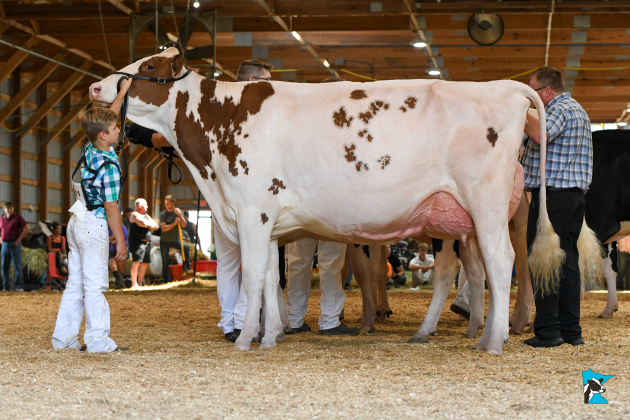Learn about the new rule requiring dairy cows to test negative for H5N1 influenza before attending Minnesota fairs. How will this impact local exhibitions?

This summer, dairy cows making their way to county fairs in Minnesota will be subject to a crucial new requirement of a influenza test. The Minnesota Board of Animal Health has now mandated a negative test for the H5N1 virus before any lactating dairy cow can participate in an exhibition for “display or judging.” This significant measure is aimed at ensuring the safety of both the animals and the public.
The H5N1 virus, a strain commonly found in wild birds, has proven to be a significant threat, causing the deaths of millions of chickens and turkeys in the past two years. Its recent detection in dairy cattle , including a Minnesota farm, has raised concerns. This underlines the importance of the new testing requirement and the need for increased vigilance in the dairy farming community.
“While H5N1 influenza in dairy cases are still being studied across the country, initial insights show milk and the udders are a hotspot for influenza virus on infected cows, which makes showing lactating dairy at events a higher risk,” said Katie Cornille, senior veterinarian of Cattle Programs at the Board of Animal Health.
Cornille said requiring a negative test before an exhibition will reduce the risk. Any cows that test positive will be quarantined for 30 days. The U.S. Department of Agriculture also has dairy cattle testing requirements in place.
Dairy cows must have a negative H5N1 test before they can be moved across state lines. Health officials say there is currently little risk to humans from the virus. According to the Centers for Disease Control and Prevention (CDC), pasteurized dairy products remain safe to consume.
The CDC recommends that people who work with sick or potentially infected animals wear personal protective equipment. Officials have reported cases in Michigan and Texas where humans were infected.
Key Takeaways:
- All lactating dairy cows must have a negative H5N1 test before participating in any fairs or exhibitions.
- The H5N1 virus, commonly found in wild birds, has caused significant poultry deaths and has recently been detected in dairy cattle.
- Cows that test positive will be quarantined for 30 days to prevent the potential spread of the virus.
- The U.S. Department of Agriculture has established nationwide dairy cattle testing requirements, including those for interstate movement.
- Health officials assure that pasteurized dairy products remain safe for consumption.
- Precautions like personal protective equipment are recommended for those working with sick or potentially infected animals.
- Confirmed cases of human infection have been reported in Michigan and Texas.











